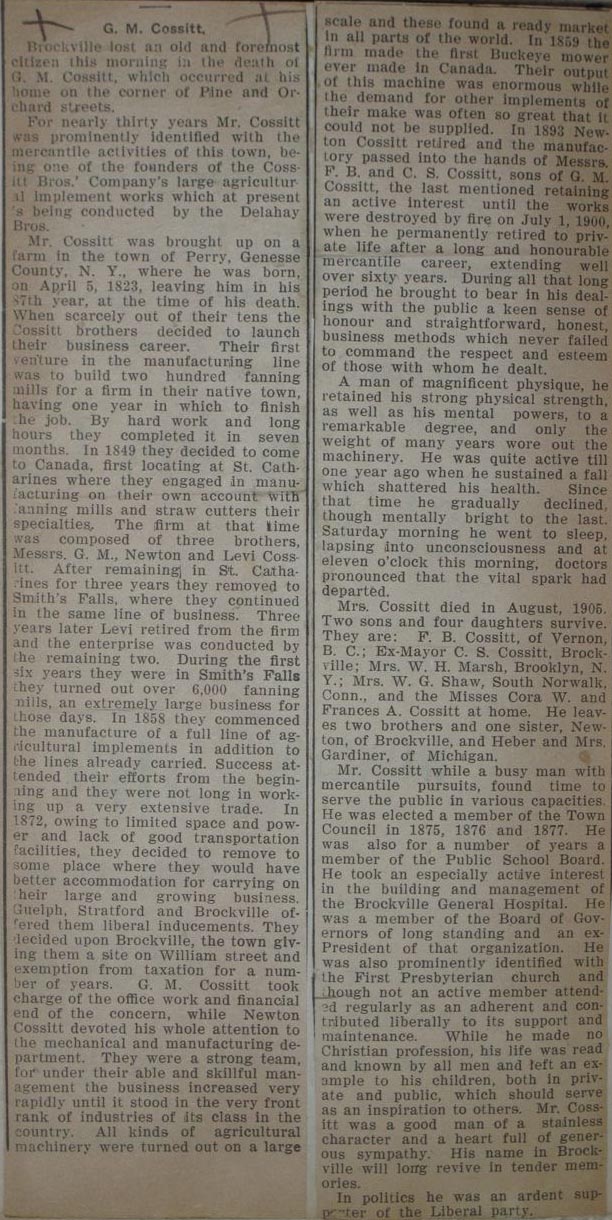The Cossitt Bros. Agricultural Implement Factory
In 1849 Germain Mott
Cossitt with his brothers Newton Cossitt and Levi
Cossitt moved to Canada and settled in St. Catherines, Ontario where they engaged in the
manufacturing of fanning mills and straw cutters as specialties.
Four years later they moved the business to Smith Falls, Ontario
and the company became known as G. M. Cossitt & Bros. SMITH FALLS
AGRICULTURAL WORKS. In 1858
they commenced the manufacture of a full line of agricultural
implements.
In 1872
they moved the business to Brockville, Ontario mainly because of a lack
of good transportation and limited manufacturing space.
By 1890 the firm employed 125 men and manufactured and sold a
wide variety of horse-drawn farming machines and implements.
The factory had its own foundry for forging the parts and
maintained a large stable for horses which drew its wagons and carts.
At its
peak, the company employed between 300 and 500 men and had nine branch
offices across Canada with dozens of small agencies that carried its
products. It introduced the
first self-binding wheat harvester, the McCormick Bindlochine.
This efficient harvester could be drawn by one span of horses.
It cut, sheaved and bound the wheat, and was equipped with a
throwing arm which would deposit the bound sheaves in a trailing wagon.
On July
1, 1900 (Dominion Day) a fire destroyed the plant with losses estimated
at $125,000. The Cossitt
brothers never laid off a single man, but kept them on salary until
replacement buildings were erected.
The factory never returned to full production, but only turned
out parts for Cossitt equipment already in use on Canadian farms.
The factory closed permanently in 1906.
At the time of closing, Massey Harris bought several patents and
continued manufacturing some of the Cossitt equipment.

Engraving by John Henry Walker and James Lovell Wiseman



